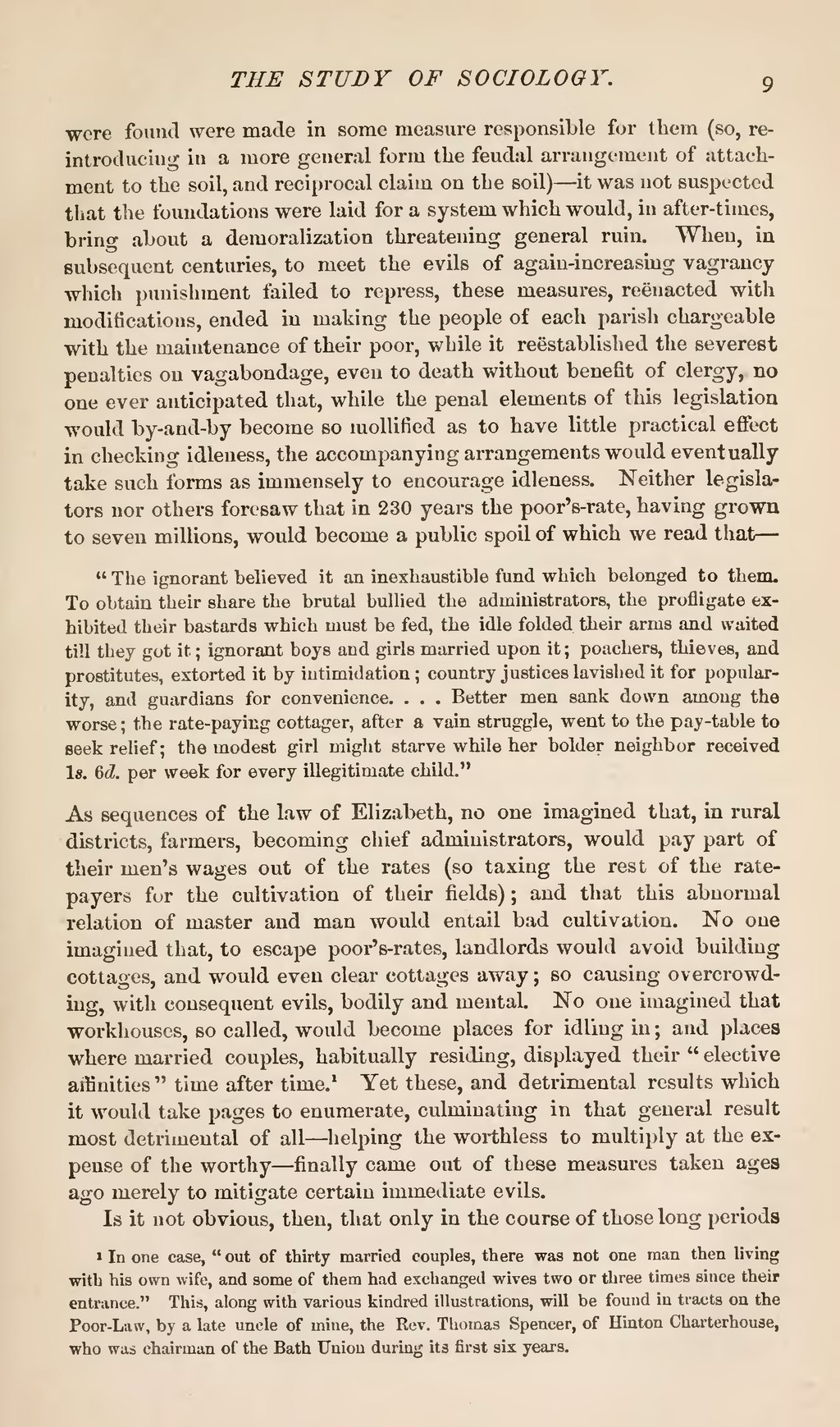were found were made in some measure responsible for them (so, re-introducing in a more general form the feudal arrangement of attachment to the soil, and reciprocal claim on the soil)—it was not suspected that the foundations were laid for a system which would, in after-times, bring about a demoralization threatening general ruin. When, in subsequent centuries, to meet the evils of again-increasing vagrancy which punishment failed to repress, these measures, reenacted with modifications, ended in making the people of each parish chargeable with the maintenance of their poor, while it reestablished the severest penalties on vagabondage, even to death without benefit of clergy, no one ever anticipated that, while the penal elements of this legislation would by-and-by become so mollified as to have little practical effect in checking idleness, the accompanying arrangements would eventually take such forms as immensely to encourage idleness. Neither legislators nor others foresaw that in 230 years the poor's-rate, having grown to seven millions, would become a public spoil of which we read that—
"The ignorant believed it an inexhaustible fund which belonged to them. To obtain their share the brutal bullied the administrators, the profligate exhibited their bastards which must be fed, the idle folded their arms and waited till they got it; ignorant boys and girls married upon it; poachers, thieves, and prostitutes, extorted it by intimidation; country justices lavished it for popularity, and guardians for convenience. . . . Better men sank down among the worse; the rate-paying cottager, after a vain struggle, went to the pay-table to seek relief; the modest girl might starve while her bolder neighbor received Is. M. per week for every illegitimate child."
As sequences of the law of Elizabeth, no one imagined that, in rural districts, farmers, becoming chief administrators, would pay part of their men's wages out of the rates (so taxing the rest of the rate-payers for the cultivation of their fields); and that this abnormal relation of master and man would entail bad cultivation. No one imagined that, to escape poor's-rates, landlords would avoid building cottages, and would even clear cottages away; so causing overcrowding, with consequent evils, bodily and mental. No one imagined that workhouses, so called, would become places for idling in; and places where married couples, habitually residing, displayed their "elective affinities" time after time.[1] Yet these, and detrimental results which it would take pages to enumerate, culminating in that general result most detrimental of all—helping the worthless to multiply at the expense of the worthy—finally came out of these measures taken ages ago merely to mitigate certain immediate evils.
Is it not obvious, then, that only in the course of those long periods
- ↑ In one case, "out of thirty married couples, there was not one man then living with his own wife, and some of them had exchanged wives two or three times since their entrance." This, along with various kindred illustrations, will be found in tracts on the Poor-Law, by a late uncle of mine, the Rev. Thomas Spencer, of Hinton Charterhouse, who was chairman of the Bath Union during its first six years.
